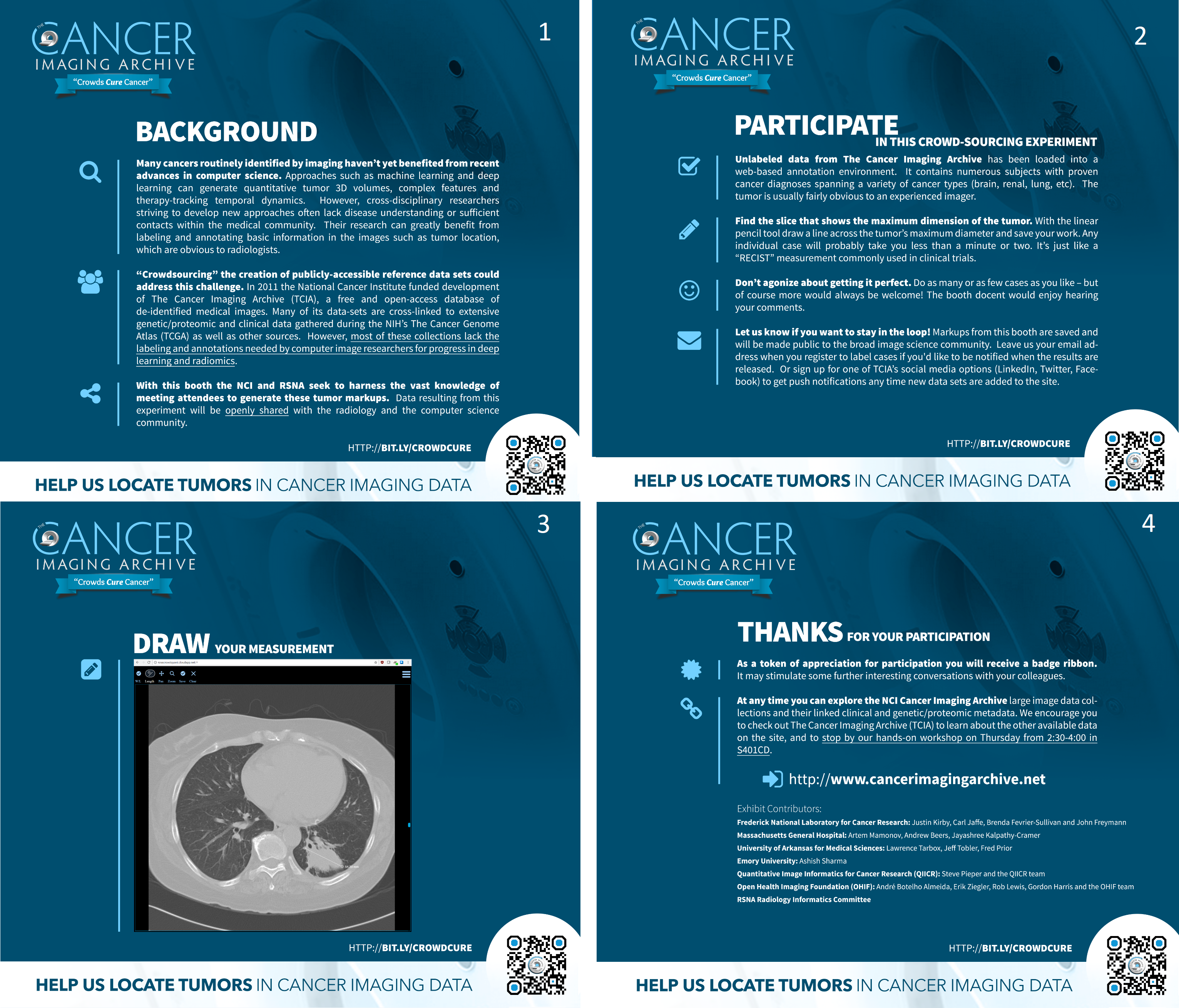Description
Many Cancers routinely identified by imaging haven’t yet benefited from recent advances in computer science. Approaches such as machine learning and deep learning can generate quantitative tumor 3D volumes, complex features and therapy-tracking temporal dynamics. However, cross-disciplinary researchers striving to develop new approaches often lack disease understanding or sufficient contacts within the medical community. Their research can greatly benefit from labeling and annotating basic information in the images such as tumor locations, which are obvious to radiologists.
Crowd-sourcing the creation of publicly-accessible reference data sets could address this challenge. In 2011 the National Cancer Institute funded development of The Cancer Imaging Archive (TCIA), a free and open-access database of medical images. However, most of these collections lack the labeling and annotations needed by image processing researchers for progress in deep learning and radiomics. As a result, TCIA has partnered with the Radiological Society of North America (RSNA) and numerous academic centers to harness the vast knowledge of RSNA meeting attendees to generate these tumor markups. Data sets annotated included CT scans from 352 subjects from the TCGA-LUAD, TCGA-KIRC, TCGA-LIHC, and TCGA-OV collections on TCIA.
A full explanation of the project can be seen in the Detailed Description tab.
Data Access
Click the Download button to save the data.
| Data Type | Download all or Query/Filter |
|---|---|
| Images (DICOM, 24.2 GB) | (Open this *.tcia manifest with NBIA Data Retriever) |
| Image Annotations (CSV) | |
| DICOM-SR files (ZIP, 3.7 Mb) * | |
| Clinical Data (CSV, 53kb) ** |
* The conversion XSLT and Makefile depends on pixelmed.jar as a DICOM toolkit, and dicom3tools, dcsrdump and dciodvfy for validation.
** Because all subjects were pulled from The Cancer Genome Atlas cohorts, clinical data was available through the NCI Genomic Data Commons. A CSV dump of that data is provided here for convenience.
Please contact help@cancerimagingarchive.net with any questions regarding usage.
Collections Used in this Third Party Analyses
Below is a list of the Collections used in these analyses:
Detailed Description
Booth posters
Citations & Data Usage Policy
Users of this data must abide by the TCIA Data Usage Policy and the Creative Commons Attribution 3.0 Unported License under which it has been published. Attribution should include references to the following citations:
Data Citation
TCIA Citation
Other Publications Using This Data
TCIA maintains a list of publications that leverage TCIA data. If you have a manuscript you'd like to add please contact the TCIA Helpdesk.
Version 1 (Current): 2018/05/17
| Data Type | Download all or Query/Filter |
|---|---|
| Images (DICOM, 24.2 GB) |
|
| Image Annotations (CSV) | |
| DICOM-SR files (ZIP) * | |
| Clinical Data (CSV) ** |
* The conversion XSLT and Makefile depends on pixelmed.jar as a DICOM toolkit, and dicom3tools, dcsrdump and dciodvfy for validation.
** Because all subjects were pulled from The Cancer Genome Atlas cohorts, clinical data was available through the NCI Genomic Data Commons. A CSV dump of that data is provided here for convenience.
